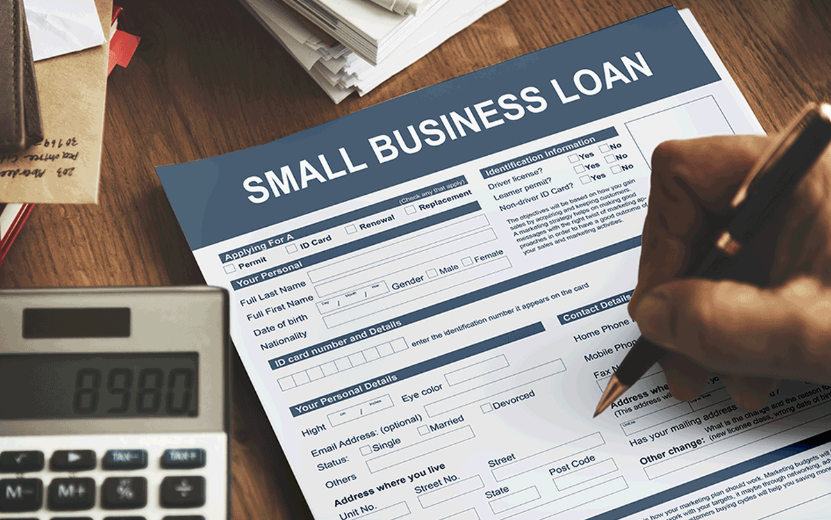Starting a small business or planning to expand an existing one in India often involves a significant amount of investment. For most entrepreneurs, taking out a Business Loan is the first step towards realizing their dreams. However, the process can often bring challenges and disappointments, especially when financial institutions reject their Business Loan applications. Read on to understand the reasons for Business Loan rejections and enhance your options for obtaining approval for your application.
Understanding Business Loans
Business Loan is a financial product specifically designed to support the needs of businesses. Entrepreneurs often apply for small Business Loans to fund their ventures, manage cash flow, or grow and expand their operations. Several types of Business Loans are available, including term loans, invoice financing, and lines of credit, all of which cater to different business needs.
Key factors influencing Business Loan Approval
There are a few critical factors that financial institutions consider when approving Business Loan applications.
Credit Score and History
Financial institutions often use credit scores as a primary factor in deciding whether to approve a loan application. A high credit score means that your credit-taking and repaying history are good, and you are likely to repay the loan on time.
A credit score of 700 or above is considered good. If your credit score is below this, financial institutions may perceive you as a risky borrower and reject your Business Loan application.
Business Plan and Financial Projections
A comprehensive business plan and realistic financial projections are essential when you apply for small Business Loan. They give financial institutions an idea of your business’s profitability and ability to repay the loan.
Financial institutions prefer a business plan that shows a clear path to profitability. Your loan application may be rejected if your business plan lacks this information or your financial projections seem unrealistic.
Business Cash Flow and Repayment Capacity
Financial institutions also assess your business’s cash flow and repayment capacity before approving a Business Loan application.
Consistent cash flow is a positive indicator of your ability to repay the loan. If your business has irregular or negative cash flow, it could be a red flag to financial institutions, leading to the rejection of your Business Loan application.
Common Reasons for Business Loan Application Rejections
Understanding the common reasons for loan application rejections can help you improve your chances of approval. Here are the most common reasons why Business Loan applications get rejected:
Poor Credit Score
A low credit score is among the most common reasons for Business Loan application rejections. Securing a Business Loan may be challenging if your credit score is below 700.
For example, if Rahul wants to apply for a small Business Loan but his credit score is 650, financial institutions may consider him a risky borrower and reject his application.
Inadequate or Poorly Documented Business Plan
An ill-prepared or insufficiently documented business plan can also lead to loan rejections. For instance, if Sonia wants to open a bakery and apply for a small Business Loan, but her business plan doesn’t provide a clear marketing strategy or realistic financial projections, her loan application may be rejected.
Insufficient Collateral
Financial institutions often require collateral to secure the loan. Your loan application might face rejection if you fail to provide sufficient collateral.
For example, if Kabir wants to expand his manufacturing business and applies for a Business Loan but doesn’t have sufficient collateral to secure the loan, his application may be rejected.
Inconsistent Business Cash Flow
If your business has inconsistent cash flow, financial institutions may doubt your ability to repay the loan, leading to the rejection of your application.
For instance, if Rohan’s restaurant business has fluctuating cash flow due to seasonal variations, the financial institutions may reject his Business Loan application.
Limited Business History or Experience
Financial institutions usually prefer businesses with a proven track record. If your business is new or has limited experience, financial institutions may see this as a risk, leading to the rejection of your loan application.
For example, suppose Jia wants to start a boutique and apply for a small Business Loan, but her business is new and lacks business experience. In that case, financial institutions may reject her loan application.
Conclusion
While applying for a Business Loan can seem daunting, grasping the reasons for frequent rejections of loan applications can empower you to take actions that enhance your approval prospects. You can significantly increase your chances of getting your Business Loan application approved by maintaining a good credit score, creating a robust business plan, managing your cash flow efficiently, and establishing a good business history. Remember, every business’s journey is unique. Don’t let a rejection deter you. Learn from it, make necessary changes, and keep trying until you succeed.
